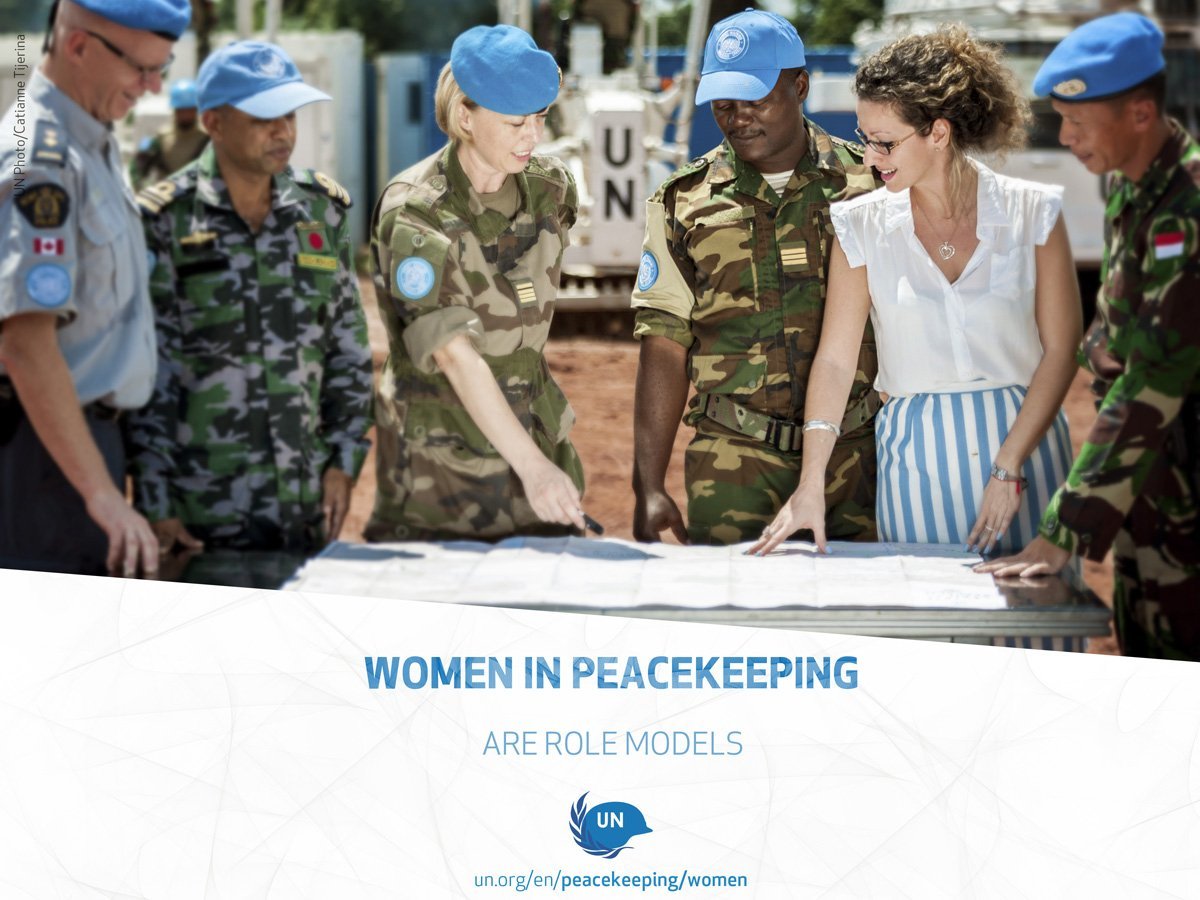Editing Office - Geneva
As peacekeeping has evolved to encompass a broader humanitarian approach, women have become increasingly part of the peacekeeping family.
 Women are deployed in all areas – police, military and civilian – and have made a positive impact on peacekeeping environments, both in supporting the role of women in building peace and protecting women's rights. In all fields of peacekeeping, women peacekeepers have proven that they can perform the same roles, to the same standards and under the same difficult conditions, as their male counterparts. It is an operational imperative that we recruit and retain female peacekeepers.
Women are deployed in all areas – police, military and civilian – and have made a positive impact on peacekeeping environments, both in supporting the role of women in building peace and protecting women's rights. In all fields of peacekeeping, women peacekeepers have proven that they can perform the same roles, to the same standards and under the same difficult conditions, as their male counterparts. It is an operational imperative that we recruit and retain female peacekeepers.
In 1993, women made up 1% of deployed uniformed personnel. In 2014 , out of approximately 125,000 peacekeepers, women constitute 3% of military personnel and 10% of police personnel in UN Peacekeeping missions. While the UN encourages and advocates for the deployment of women to uniformed functions, the responsibility for deployment of women in the police and military lies with Member States. UN Police Division launched 'the Global Effort' to recruit more female police officers into national police services and into UN police operations around the world. Striving towards gender parity amongst UN staff is a priority for the UN Secretary-General. At the UN Headquarters in 2012, 48 per cent of staff were women and 52 per cent men, with the most disparity showing at the mid and senior levels. In peacekeeping operations and special political missions, the figures are more challenging, with women making up only 29 percent of international and 17 per cent of national staff. These statistics have remained largely unchanged over the past few years. During 2013, the Departments of Field Support, Peacekeeping Operations and Political Affairs undertook a project called "Bridging the Civilian Gap in Peace Operation" to better understand the barriers to attracting, retaining and advancing female staff in the field. The report has been published and recommendations are being developed for implementation in 2014 and beyond. With civilian field staff representing 53 per cent of all UN Secretariat staff, an increase in the number of civilian women in peace operations will help towards increasing the number of female staff serving with the United Nations at large. Find out more in our gender statistics section to download a monthly breakdown of the number of male and female uniformed personnel working across our missions. For its part, the Department of Peacekeeping Operations (DPKO) continues to respond to the call in all Women, Peace and Security mandates to increase the numbers of women in peacekeeping by advocating for the deployment of more women. However the ultimate responsibility for getting more women into the military peacekeeping lies with the individual countries that contributing troops and police.
Why is it important to have female peacekeepers?
emale peacekeepers act as role models in the local environment, inspiring women and girls in often male-dominated societies to push for their own rights and for participation in peace processes.